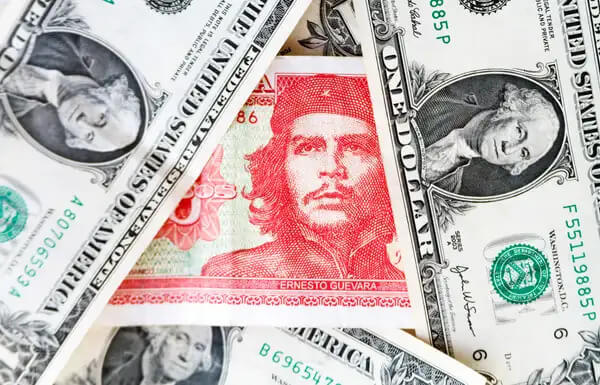With only the U.S. and Israel in opposition, the United Nations General Assembly on Thursday voted to condemn the American economic embargo on Cuba.
The UNGA has passed a similar resolution every year since 1992. This year’s vote of 187 nations in favor tied the record number of supporters in 2019 and was an increase over last year’s 185 affirmative votes.
The embargo, first implemented in 1960 by the Eisenhower administration and expanded by President Kennedy, was in response to the young communist government nationalizing American companies and signing trade deals with the Soviet Union.
A notable participant not supporting the U.S. was Ukraine whose delegation voted in abstention.
Cuba’s foreign minister, Bruno Rodríguez, told the General Assembly before the vote that the trade embargo was “the most cruel and long-lasting unilateral coercive measures that have ever been applied against any country.” Rodríguez also called the policy “a crime of genocide,” and an “act of economic warfare during times of peace.”
In 2016, the Obama administration abstained from the measure during a period of restoring diplomatic ties with the island nation. In 2017, this policy was reversed by the Trump State Department who took a stance against Cuba’s human rights record with then ambassador Nikki Haley saying, “Today, the crime is the Cuban government’s continued repression of its people and failure to meet even the minimum requirements of a free and just society.”
The dictatorship in Cuba has in recent years faced criticism for is close ties to rouge nations, including ones that support terrorist organizations. In June of this year, Iranian President Ebrahim Raisi concluded a state visit to Havana where Cuban President Miguel Diaz-Canel asked the visiting leader for help in confronting “Yankee imperialism.”
Cuba has voiced support for Russia’s 2022 invasion of Ukraine and hosted Russian Foreign Minister Sergey Lavrov in April. During this trip the Cuban government strongly criticized the war related economic sanctions placed on Russia and rejected the “expansionist aspirations” of NATO.
President Diaz has recently been approaching China for assistance, possibly resulting in a permanent presence of the Chinese military in the Caribbean. Two separate reports from The Wall St. Journal this summer stated that Cuba is in talks with Beijing to build a joint military training center and an electronic eavesdropping facility 100 miles from the U.S. border.
In February, a high-level delegation from the Hamas terror group was welcomed in Beirut by the Cuban Embassy in Lebanon. The ambassador, Jorge Leon Cruz, released a statement after the meeting saying that his country supports, “the legitimate right of the Palestinians to defend their land,” and that the Gaza based organization is “fighting for a just cause.”
Shortly after the Oct. 7 massacre of civilians by Hamas in southern Israel, the press secretary for Cuba’s president released a statement on social media saying, “Long Live Free Palestine.”
Cuba is historically the only country in the Western Hemisphere that does not recognize Israel as a sovereign state. The former Castro regime ended diplomatic relations with Jerusalem in 1973.
Resolutions passed by the General Assembly are not enforceable or legally binding, but they are generally seen as a strong measure of world public opinion.
Related Story: Cuban Military Dictatorship Joins Iran, Saudi Arabia, Qatar in Blaming Israel for Hamas Terrorist Attack









